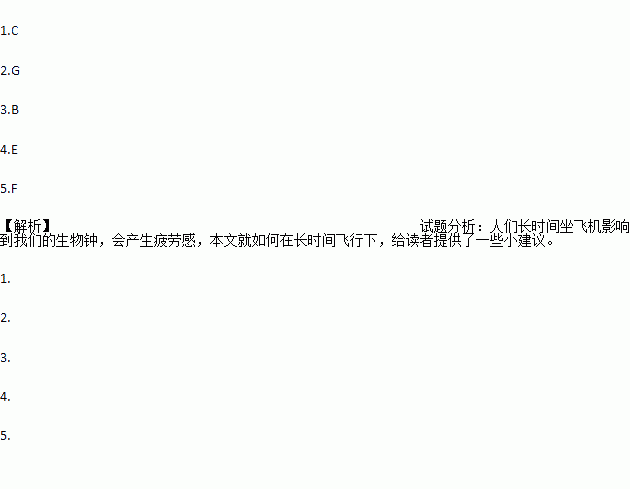题目内容
A long flight can affect one's biological block, sometimes for days. Air travelers can get very tired and develop unpleasant feelings when they fly great distances across time zones. The natural order of things can become unbalanced on long, overseas trips from east to west or from west to east. This is what we call jet lag. 1.
● Try changing your meal and sleep times before you go
Several days before you travel, start moving your bedtime and hours for meals closer to the times you plan to eat and sleep on your trip.
● 2.
Change your watch when you get on the airplane. This is playing a trick on the mind. But it can help you to start thinking of the time at the other end of the flight. Try to sleep on the plane if it is nighttime in the place where you are going. Try to stay awake if it is daytime.
● Arrive early
If you are traveling for work or for a personal reason, try to arrive a few days early, if possible. 3.
● Drink water
Drink lots of water before, during, and after your flight. 4. Alcohol and caffeine can interfere with sleep.
● Move around
During your flight, get up and walk around or stretch every so often. 5. Exercise near bedtime can delay sleep, whether on an overseas trip or at home.
A. Play a trick on your watch.
B. This will give your mind and body more time to correct to the new hours.
C. Now the following tips can help you avoid jet lag.
D. Because exercise benefits you a lot after the flight.
E. Avoid drinking alcohol or caffeine a few hours before you plan to sleep.
F. But after you land, avoid heavy exercise near bedtime.
G. Start making small changes while in flight.
 阅读快车系列答案
阅读快车系列答案

 ),并在其下面写出该加的词。
),并在其下面写出该加的词。